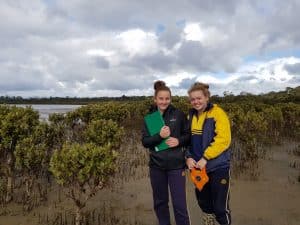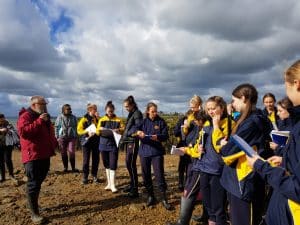This week we celebrate Humanities Week. A week filled with activities that showcase the value of the varied range of subjects that are offered by the Humanities Department at Strathcona. In a world driven by tech Humanities subjects have been somewhat obscured by the focus on technological advances, but the elements and advantages that are offered by studying Humanities are continuing to be highly valued by employers and very sought after in the job market. The problem solving, the global perspective of past and future, economic ideologies and the ultimate understanding of human behaviour are valuable insights.
Each of the Humanities subjects that we offer involve the study of human behaviour and they also incorporate the interaction of social, cultural, environmental, economic and political contexts (Australian Curriculum). Humanities subjects enable students to develop their curiosity, creativity and empathic traits, which are so important for them to function as part of the current and future workforce. The subjects offered by the Strathcona Humanities Department encourage students to develop their humanist skills which have continued to become more essential as the world becomes more automated. Many employers view critical-thinking, problem-solving skills, the ability to effectively communicate and decision-making skills as vital. The broad set of transferable skills that are enhanced through the study of the humanities subjects, along with the ability to use humanist judgement and make connections to the past, present and future are significantly advantageous skills that are cried out for in highly technological and digital roles.
Understandably, students (and their parents) are focused on reaching for vocational advantages. The skills developed in humanities can offer this. Apart from vocational advantages, it is through the humanities subjects that students learn how communities have risen and fallen. These subjects also enable our students to identify how human beings have:
- pursued goals
- discovered, shared and used resources
- developed economies
- established political systems that have served or undermined nations
- been involved in the interrelationships between society, physical and human environments.


Humanities students (as VanSledright, 2004, stated specifically about history students) ‘…are informed, thoughtful, critical readers, who appreciate investigative enterprises, know good arguments when they hear them, and who engage in their world with a host of strategies for understanding it.’ Through the study of humanities, students engage in diverse disciplines that bridge the arts and social and natural sciences, providing a broad education. They address pressing issues including environmental change, regional and global inequalities and the transformation of global economy and culture. Students obtain a coherent view of the rapidly changing world and the ways in which society influences and is influenced by it. The humanities and social science subjects that are part of Humanities at Strathcona involve the study of human behaviour and interaction in social, cultural, environmental, economic and political contexts. They have a historical and contemporary focus, from personal to global contexts, and consider challenges for the future.


studies in Humanities, develop their
humanist knowledge and are enabled
to critically assess it. They are
provided with the opportunity to
extrapolate information, translate their
learning and build a new worldview.
They are offered knowledge that helps
them to mature into successful,
productive members of society, who
can embrace the notion of empathy
and seek lifelong learning about
societies, environments and the
structures that dictate our lives
(political, spiritual, social and economic). Our students develop the ability to question, think critically, solve problems, communicate effectively, make decisions and adapt to change. Thinking about and responding to issues requires an understanding of the key historical, geographical, political, economic and societal factors involved, and how these different factors interrelate.
We value the Humanities at Strathcona, because we see these truths with absolute clarity. We know that our students will emerge from their education having engaged in humanist, environmental and socio-political thinking processes, after being exposed to thinking, analysing and questioning skills and processes, as well the benefits of service to humanity and our planet.
Mrs Sarah North
Head of Humanities

